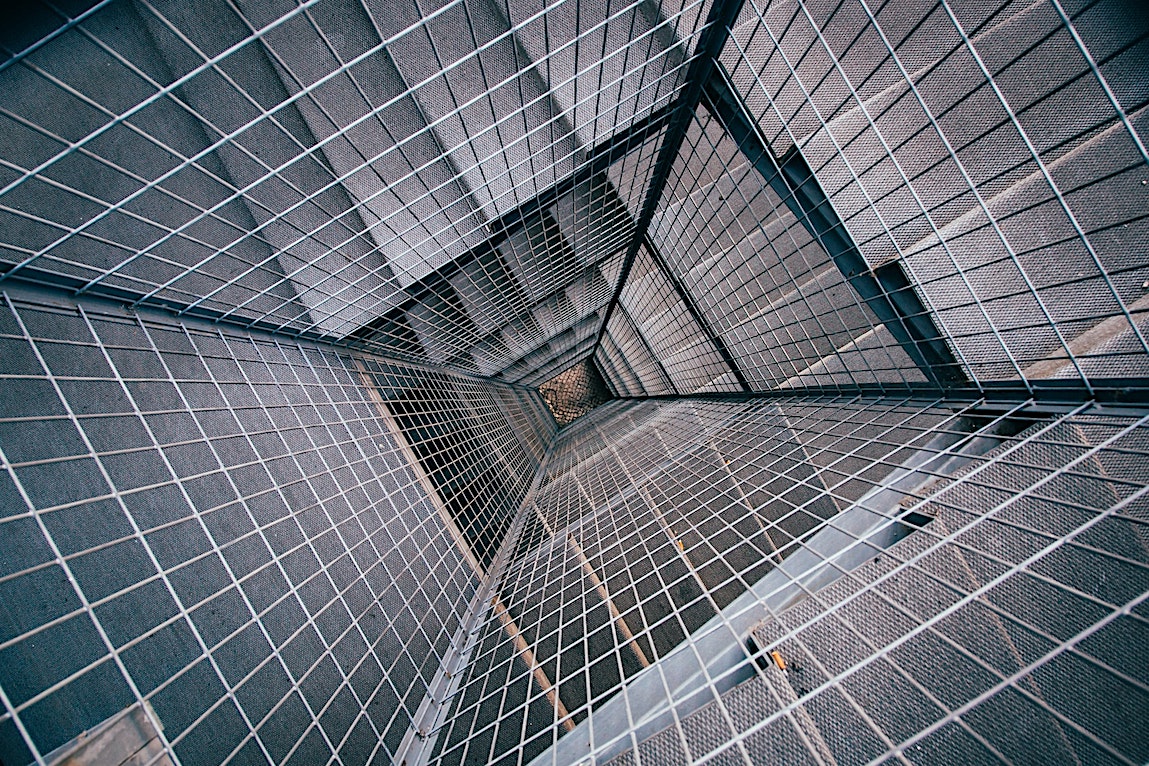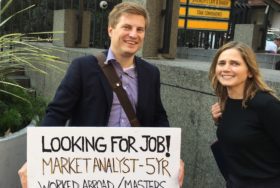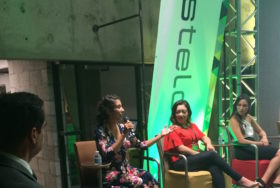
Entrepreneurship, fast prototyping, customer-centric thinking – our proven modes of working and creating are under attack. Where to begin when so much is in jeopardy? The business paradigms through which we see trends and anticipate markets are in flux. Assumptions about how things work and what we value teeter on the brink. It’s time for a radical rethink. We need to break out of the box.
Working on our upcoming book The Entrepreneur’s Faces, we’ve been immersed in the world of entrepreneurs and startups. We know how they did it in pre-pandemic times. They found a pain or a missing element. They brainstormed and prototyped beyond current realities, breaking from standard expectations to dream big. Status quo thinking was meant to be disrupted. That’s how they leaped to novel business models.
What’s different today?
Suddenly we’re confronted with a whole new crop of boxes that we need to rethink. Conflating school buildings with education is boxed-in thinking. Viewing typical restaurants as the paragon of communal eating and companionship is boxed-in thinking. Associating cities with your personal economic opportunity is a sign of very big boxed-in thinking.
Let’s consider some popularly accepted “boxes.” How might we rethink these paradigms?
Assumption #1: Everybody has a job or can get one.
So many industries, services and products have come to a skidding stop. Demand worldwide has plummeted. Millions of jobs will never come back. “Find something new!” cheered Ivanka Trump on Bastille Day, in spectacular Marie Antoinette fashion. But millions if not tens of millions of Americans will not be finding good new jobs anytime soon, putting our way of life and democracy itself in doubt. Unless we want a revolution we need something more substantial than fatuous pronouncements about embracing change under the old rules. We need long-term stimulus packages, or a Roosevelt-styled WPA program to get people back to work.
Assumption #2: People love cities.
Before the pandemic, cities were all the rage. Now they are seen as dangerous and dirty. Dense population translates into more virus to go around. Conversely, most of the cultural and communal attractions that drew us to cities are shuttered. Many will not come back for years. Homelessness and increased crime will hamper revitalization. American suburbs and countryside have never looked better.
Assumption #3: People eat at restaurants.
There is nothing essential about eating at a restaurant. Especially when you’re trying to save cash. The pandemic has closed thousands of restaurants, which themselves have been proven to exhibit super-spreader potential. Some may be limping along with takeout orders but that is not a restaurant. Outdoor dining only works for a fraction of locations and not in the winter. We’re betting that new, safer models will emerge. Like more food truck parks and open air markets.
Assumption #4: People go to events.
Hundreds of dollars for a sports ticket or concert, thousands for a tech conference. Americans have been seduced the last decade by the social media juiced appeal of… being there. The fear of missing out, the insular press coverage and social sharing … the air is going out of that balloon. Celebrities and sports stars need an adoring, subservient public to thrive, and our current break from action is a terminal fracture in that narcissistic loop. Soon we will be thinking, why did we fall under this collective spell? We’ll seek and create new, authentic, participatory experiences to come together.
Assumption #5: Kids go to school.
Our failure to control the virus puts the future of education in doubt. When one lost semester becomes two or three, who’s to say that school won’t remain primarily online, that distance learning won’t become the norm, and that our massive investment in physical infrastructure and countless teachers might be questioned? When the classroom model is under threat, what’s next? Why should your child’s learning be constrained by geography? Or by their age, or outdated norms of curriculum?
Assumption #6: Professionals need to work at offices.
For more than half a century the dream of many educated Americans was to get a job with a company and dutifully commute to an office. The co-working boom of recent years was an offshoot of this boxed-in thinking. But virtually every professional task that can be done online will soon no longer need to be done in a distinct, fixed physical place. Now that the risks and true associated costs of office space (wasted time, transit, pollution, etc.) are so starkly clear, leading entrepreneurs and companies will break from this albatross. Prepare for inventive approaches to collaborate and increase productivity both online and in totally new physical models.
Assumption #7: People travel.
The world once placed a visit to America at the top of the list. Our passport was gold. Now it isn’t worth the paper it’s printed on, and our tourism industry has been irrevocably wrecked by a failure of federal and state leadership. To expect that to come back anytime soon is naïve. Safer, far more responsible countries with governments that care deeply about public health will become the new travel magnets.
Assumption #8: People buy homes.
Home buying has always been closely tied to local jobs and economic opportunity. But if many jobs can be done anywhere, why pay more for less house in a formerly prosperous economic region? And why lock up major assets in the midst of a global pandemic? When the safety and economic growth of communities, states and countries are in flux, home ownership can be a tremendous risk. The global flexibility ushered in by Airbnb has just begun.
Assumption #9: People need gyms.
Gyms were always iffy, one of the earliest subscription models sold most often on the back of New Year’s resolutions. Packing hundreds of people into ugly buildings stuffed with machines, barbells, meatheads, and ever-present mirrors was always a recipe for spreading germs. Now that we spend so much time at home who’s going to pay to spend several more hours a week in another building? Peloton, The Mirror, and many other innovative home exercise services and machines doom the classic gym. But we are more excited about the creative ways people are getting out into nature and their world – biking, hiking, and doing guided workouts at a safe social distance in parks. A healthier future lies for us in improvising our own gym from what our town and neighboring lands provide.
Assumption #10: People think ahead.
Optimism and traction are about setting reachable goals, about having things to look forward to. When so much is called into question our typical linear ways of thinking and planning collapse. When there’s no common understanding of what next month or year may bring, people begin to lose hope. This may be the world’s single greatest challenge ahead, to find the necessary courage and optimism to begin charting paths out of this human inflicted disaster.
As we look to the future, the status quo is quickly receding from view. When all is in flux, there is no standard, no glue holding us together. Variety and extremes become more attractive – and popular. This will be a tremendous opportunity for entrepreneurs to step into this void, take leadership, and create new, more valuable experiences, services and products.
It’s time for a new paradigm. We need to break out of the box.


